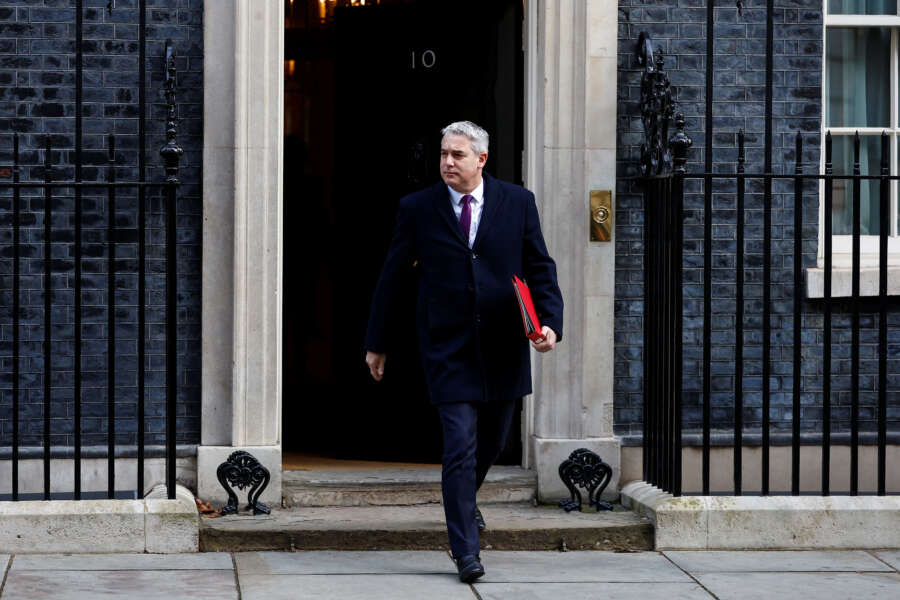
LONDON (Reuters) – Britain’s health minister warned patients’ safety is at risk as junior doctors began four days of strikes on Tuesday that are likely to cause unprecedented disruption.
Tens of thousands of junior doctors planned to walk out demanding pay rises better aligned with inflation, meaning many operations and other non-emergency appointments would be cancelled across the state-funded National Health Service (NHS).
The British Medical Association (BMA), the union representing doctors, wants a 35% rise, arguing that members have suffered a 26% real terms cut in pay over 15 years. Tuesday’s walkout followed a three-day doctors’ strike last month.
“Not only will the walkouts risk patient safety, but they have also been timed to maximise disruption after the Easter break,” Health Secretary Steve Barclay said in a statement.
Junior doctors – about 75,000 qualified physicians some of whom are very experienced – make up a sizeable chunk of Britain’s workforce of medics. They say the strikes could be stopped if Barclay put a credible offer forward.
He says the demands are unreasonable and would mean an increase of more then 20,000 pounds ($24,840) for some.
The strike is the latest to involve NHS staff, following walkouts by nurses, paramedics and others demanding rises that better reflects annual inflation running at more than 10%.
The NHS Confederation, which represents organisations across the healthcare sector, said the action would leave many aspects of patient care “on a knife edge”.
“This next round of strikes will see unparalleled levels of disruption, and we are very concerned about the potential severity of impact on patients and services across the country,” said Stephen Powis, the NHS national medical director.
($1 = 0.8052 pounds)
(Reporting by Michael Holden; Editing by Andrew Cawthorne)


